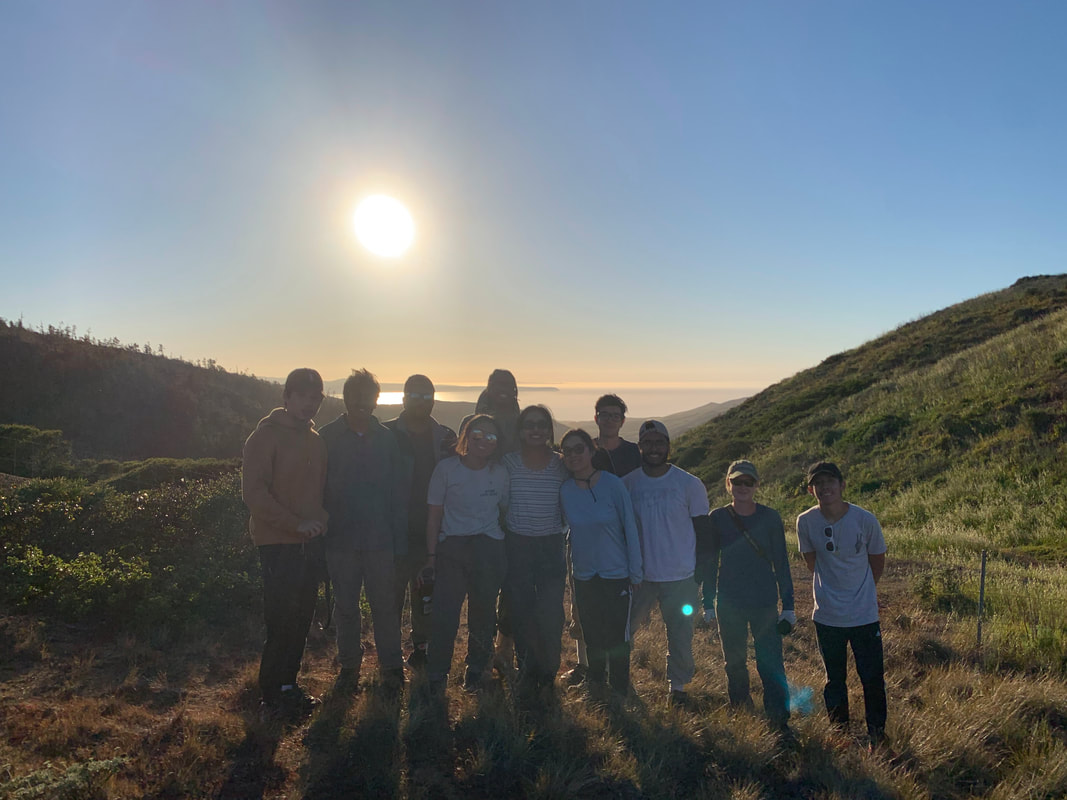|
Field experiences are known to improve inclusion in ecology by fostering a sense of scientific ownership and belonging in science. However, students may lack access to course-based undergraduate research experiences. SEEDS at the University of California, Riverside has worked to bridge this gap by creating undergraduate-led and organized research experiences for our undergraduate population to improve diversity in the ecological profession.
In early 2022, three student leaders trained seven undergraduate peers in research methods and provided a fully-funded field research opportunity with the goal of engaging students with little exposure to ecology. This project and research-focused field trip had three objectives informed by key opportunities for undergraduate education and important research priorities: (1) to train undergraduate students in ecological and conservation methods by providing a field research opportunity, (2) to contribute to the scientific understanding of passive vegetation recovery after the removal of invasive herbivores, and (3) to contribute to ongoing botanical documentation on the island by collecting herbarium specimens (pressed and preserved plants). During Spring Break 2022, 10 students from SEEDS-UCR went on a 3 day research expedition to Santa Cruz Island. The island offers unparalleled opportunities to learn about ecology as it is rich in biodiversity with numerous species found only on the island, and showcases multiple marine and terrestrial ecosystems from tidepools to mountains. From a research perspective, Santa Cruz Island is an excellent case study, serving as a natural laboratory to understand the recovery of native ecosystems. In the past, sheep and other invasive grazers significantly destroyed the native shrubland vegetation of the island, causing a conversion to grassland and a reduction in biodiversity. In 2006, all invasive herbivores were removed and the island has been allowed to recover passively with little intervention. Vegetation was first assessed in 1980 before herbivore removal and later resampled in 2012. During this trip, we resampled the island in 2022, 16 years after the complete removal of invasive herbivores, to investigate long-term passive vegetation recovery. We recorded 960 observations at 16 different locations, while also collecting plant specimens of 20 different species for the UCR Herbarium. This project will provide critical insights into how ecosystems can recover, and how long this process may take. We worked with professors, staff, and graduate students at UC Riverside, UC Santa Cruz, staff at the UC Santa Barbara Santa Cruz Island Natural Reserve, Cal Poly San Luis Obispo, the UC Riverside Herbarium, and the UC Riverside Center for Conservation Biology to plan and conduct this project. This opportunity was fully funded through grants from the Ecological Society of America National SEEDS program, the California Native Plant Society, and the UCR Center for Conservation Biology. We would like to thank these organizations and individuals for making this opportunity possible.
0 Comments
A workshop was hosted by Secretary, Tejas Nair, to discuss the marine science background on Santa Cruz Island. The sampling methods were also explained in more detail as well as the planning of the agenda.
In preparation for the upcoming SCIRP trip, the co-leaders of SCIRP (Rhea, Advyth, and Caryn) organized and hosted topical workshops relating to the trip. The goals of this workshop series was to give relevant background regarding Santa Cruz Island, details and logistics of the SCIRP project, and provide essential skills and knowledge in order to implement research in the field.
The first workshop of the series happened at the beginning of the winter quarter of 2022, the co-leaders of SCIRP hosted an informational meeting that overviewed the project to students interested in participating in the research project. This virtual meeting gave a background of the natural history pertaining to the research site, Santa Cruz Island, the objectives of the project, and the tentative trip itinerary. New students were introduced SEEDS as an organization and what the club does aside from this specific project. |
Co-leaders2021-2022 Archives
August 2022
|

